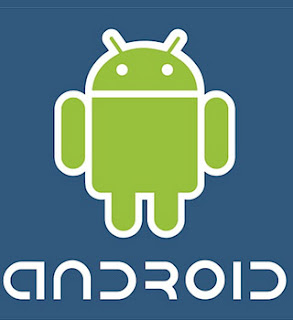Do you use your Android Phone to the lees?
Hello
everyone! You may be wondering about this Hello at the outset of my article,
but no wonder if I told you this is my first article here concerning the topic
of smart phones. AS one among many Android users I experienced many features
using this smart phone, some of them were good but many were not satisfying my
own needs. Yet, in this Article I will state Help with some steps on how you
start using an Android.
First
of all, tell me what you are interested in I can tell you what to look for in
Android Market applications. That is how Android phones are programmed. But
before we go deep into matters I give you some steps to use your new Android
phone:
Step 1: Switch on your phone and open your Wi-Fi internet.
Step
two: Afterwards go to Menu, then look for The Gmail application and open your
Gmail if you have one otherwise get registered for a new one. Android
applications or most of them are working as long as your Gmail is on, otherwise
you cannot use any at all save for some belonging to Samsung apps.
Step 3: Go to The Market, I mean Android Market , and you
will find applications for your phone organized according to their category (
e.i Communication, Education, Media, Tools, widgets and so on and so forth. There
is another criterion for organizing Android applications, that is according to whether
they are Top free or Top paid.
Step 4: Thus for now you can choose any application you
desire according to your area of interest, if the application is free you will
just go through the procedure of first downloading it then the system installs
it automatically. In case, It is paid they ask you about the serial number of
your Master card or your PayPal account to buy it then download to be
installed.
 Step 5: Let’s say you did not like an application after you
tried it or simply you stopped using it and wanted to uninstall it, go to the
menu, afterwards to setting, Go again to the application management, and click
on any unwanted application then you can uninstall.
Step 5: Let’s say you did not like an application after you
tried it or simply you stopped using it and wanted to uninstall it, go to the
menu, afterwards to setting, Go again to the application management, and click
on any unwanted application then you can uninstall.
If
you use a Samsung with an Android operating system, then you can look for
applications in Samsung apps which is a default application in all Samsungs.
Still, you will need to connect to either Facebook or Twitter Account. Then you
will be allowed to Download and install.
Some
of the problems that you will be encountering in using such a phone is that you
will find the phone’s memory low to install all the application you will need.
Another problem is rooting your phone or in other words upgrading your phone’s
system into another, during the process you can lose a lot of features. Some
will love to install their applications manually without any internet
connection in their phones (offline install). There are a lot of drawbacks;
still Android systems are open to any change. To solve the last problems that I
have just mentioned read my next Article about overcoming your Android
shortcomings. Now I will just list some of the applications that you may look
for in an Android Market:
Reference: Go Book
Aldiko
Reader
Social
Networking: Chatdroid
and Nimbuz for Chat in general and Facebook chat
Tweetcaster
Games
: Angry Birds Talking Tom
In
short there is a lot to talk about concerning Android systems, yet now I will
let you configure your new Android and in the next Article I promise you I will
unveil some new tricks.
Written
By Idriss El Mahdali
